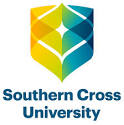You'll experience innovative learning with industry-led projects at the University’s Digital Enterprise Lab, which might include digital health, digital tourism and smart cities.

Overview
Whether it’s biometric recognition, digital health monitoring or connectivity to the Internet of Things, technology is shaping how we live at an unprecedented and increasing speed.
If you want to be part of this transformation, the Master of Information Technology (MIT) places you at the cutting edge.
You'll experience innovative learning with industry-led projects at the University’s Digital Enterprise Lab, which might include digital health, digital tourism and smart cities.
You will master cutting-edge technologies in artificial intelligence, virtual/augmented reality and the Internet of Things with advanced coursework and real-world applications.
The course is designed for both IT and non-IT professionals. Together with core units in data science, cyber security, software development and user experience, you have the option to tailor your studies with advanced specialist units.
As a graduate you are well-prepared for senior and leadership roles in all manner of businesses and organisations, from both the private and public sector.
Career Outcomes
Graduates will be prepared for a variety of roles with advanced expertise in cyber security, software engineering, user experience and data science.
Requirements
We encourage you to apply for the courses you most want to study. If you are not eligible to enter your chosen course right now, our team will work with you to find the best pathway option.
Before applying, make sure you double check all entry requirements, gather required documentation and review the University’s Rules Relating to Awards, noting any specifics listed below.
An applicant for admission to the Master of Information Technology must have:
Completed a Bachelor’s degree or equivalent in a related discipline; or
Completed a Bachelor’s degree in any discipline from a recognised Australian tertiary institution, with at least a 55% (Pass) average; or
Equivalent professional experience.
Language requirements
English language requirements apply to International applicants and other applicants whose previous study was undertaken in a language other than English.
Course Structure
Course progressions
Schedule of Units
Your course progression is in the recommended order you should complete your course in. It is important that you follow this to ensure you meet the course requirements. For further assistance see How to Enrol in Units using My Enrolment.
Students should use course progression information to select units specific to their course and enrol in these units using My Enrolment.
Core Units
COMP5001 Computer Networks
ISYS5003 Principles of User Experience Design
PROG5001 Fundamentals of Programming
ISYS5005 Designing Information Systems
BUSN6004 Managing Information Systems
PROJ5001 Project Management
MGMT5002 Organisational Behaviour
PROJ6002 Applied Research Project I
PROJ6004 Applied Research Project II
Southern Cross University's Gold Coast campus is located at Coolangatta, just 400 metres from North Kirra Beach and adjacent to the Gold Coast Airport. Views of the Pacific Ocean and Gold Coast Hinterland can be enjoyed from many vantage points in the campus buildings.
Our course options reflect the growth and diversity of the city itself. They include arts, engineering, nursing, midwifery, occupational therapy, psychological science, speech pathology, social work and community welfare, sports science and exercise physiology, osteopathy, naturopathy, business, education, information technology, law and tourism.
Situated at the southern end of the Gold Coast, the campus is about 30 minutes’ drive from major shopping, entertainment and beach precincts such as Surfers Paradise and Broadbeach. Light rail connects to other points of the city. To the south of our campus, the coastal and hinterland delights of northern New South Wales are within ready access.
© 2025 coursetakers.com All Rights Reserved. Terms and Conditions of use | Privacy Policy